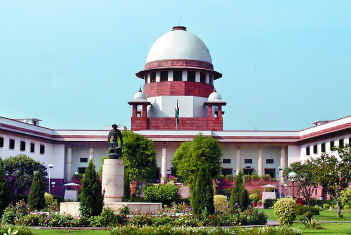
The news item in the Times of India of 27 November 2009 that The Chief Justice of Indian Supreme Court has written a letter to the Prime Minister seeking his help in exempting matters relating to administration of justice from the purview of Right To Information Act, has really surprised me. The CJI has written this letter due to an order of the Chief Information Commissioner that the judiciary must divulge details on sensitive issues such as appointment of judges.
The Chief Justice has tried to keep the judges away, previously also, from the public scrutiny by saying that the office of the CJI is out of the purview of the RTI Act and the disclosure of the assets of the judges, which is with him, can not be made public. Thanks to the Delhi High Court that has accepted that the judges are also within the purview of the RTI Act, and the assets of the judges can be made public. The letter of the CJI to PM has also said that there are other sensitive matters relating to administration of justice, which if divulged, could create division within the judiciary and ultimately fell upon its independence.
We all know that the office of CJI is an important constitutional office and the Indian judiciary has been made an independent institution under the Constitution. The role of judiciary has been assigned as the custodian of the Constitution and the other laws and for that purpose to ensure and encourage the transparency and accountability of public institutions. The RTI Act was enacted to enable the people and the media to keep watch over the corrupt practices of the government institutions and its officials and the judiciary is supposed to assist in it by upholding the right of the people to ask for the information from any of the government organs and officials.
Instead, the judiciary, itself, is trying to halt the process of ensuring transparency and accountability by denying the information about the assets and appointment of the judges to the people. Everyone in the country knows that the judicial system in India is highly corrupt like any other government department and recently we have witnessed some striking cases of judicial corruption. Our judges, Lawyers, prosecutors, and police-all are part of law enforcement always tries to distort and delay justice and make it too costly for the common man.
The justice in India is almost on sale and the one who has the money can buy it. May be there are some exceptions but the over all scenario of justice in India is deplorable and no body is really willing to take help of judiciary unless he or she is compelled to do so. People still have some faith in judiciary not because of its virtues but due to the fact that the other institutions of the government like Legislature and Executive, which are consisted of politicians and bureaucrats, are worst than judiciary. Had judiciary been functioning well in India there would not have been the bulk of pending cases before them causing unnecessary delay in the delivery of justice? The delay is deliberate to make the things easy for corrupt practices.
The judiciary is a public institution, its members being paid from public exchequer, having accountability to the people and responsibility to perform the functions for that it has been created. It can not deny the public access to the matters relating to the functioning, assets and appointment of its members in the name of its independence or any other excuse.
If people want and can get information from other government institutions, then why not from judiciary! It seems the judiciary is trying to misuse its independence and hide the vital information about its members that will reveal its misdeeds and expose it to public scrutiny. Taking the advantage of the constitutional safeguards the judiciary is trying to continue the corrupt practices of its members that is totally against the mandate of the Constitution.



